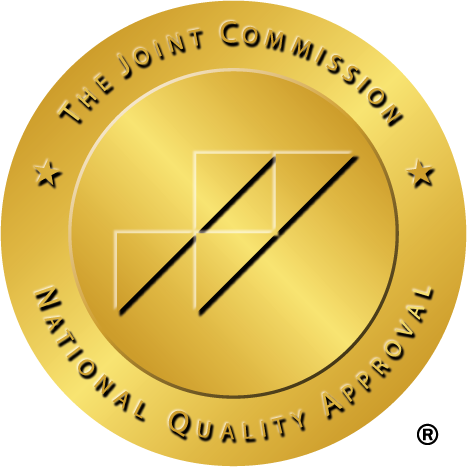KEY POINTS
- Private mental health hospitals offer personalized, confidential care in a comfortable environment.
- Private psychiatric facilities often offer a wide range of treatments, including medication management, therapy, and holistic approaches.
- Choosing the right facility involves thorough research, consultations, and evaluations of the hospital’s specialties and amenities.
If you struggle with mental health conditions, your options for treatment usually include public mental health services and private mental health hospitals. Private mental health hospitals are specialized facilities that provide personalized care and treatment options with a complete and fully qualified staff.
Learn more about the benefits of a private mental health hospital, the treatment options, and how to know if it’s the right choice for your care.
What Is a Private Mental Health Hospital?
Also known as a private psychiatric hospital, a private mental health hospital is a specialized facility dedicated to diagnosing, treating, and managing mental health conditions as an alternative to public services.
The services available at a private mental health hospital are diverse, personalized, and often high-end, ensuring you get the care that’s appropriate for your individual needs and condition.
How Do Private Mental Health Hospitals Differ from Public Mental Health Services?
Private mental health hospitals offer more personalized care, better amenities, and enhanced privacy compared to public mental health institutions, many of which have had funding reduced in recent years, creating less availability to those in need. [1]
Who Are Private Mental Health Hospitals Best Suited For?
Private mental health hospitals are ideal if you need intensive, specialized care and prefer a higher level of privacy and comfort. These facilities are well suited if:
- You have severe mental health conditions: If you’re struggling with acute mental illnesses like severe depression, bipolar disorder, schizophrenia, or personality disorders, you can benefit from the intensive care and specialized treatment options available at private psychiatric hospitals.
- You are concerned about confidentiality: While all medical and mental health treatments are confidential by law, private mental health hospitals often have a higher level of privacy.[2] If you need confidentiality for professional or personal reasons and you’re concerned about your privacy during treatment, private mental health hospitals may be the best choice.
- You require customized treatment: Private psychiatric facilities provide tailored treatment plans and a range of therapeutic options that may not be available through public mental health services. In addition to evidence-based treatment, you may have high-end amenities and holistic treatments.
- Your mental health has negatively impacted your life: If you’ve experienced extreme emotions like anger, sadness, or frustration, suicidal ideation has threatened your well-being, or your life is impacted to the point that it’s difficult to manage, private mental health care may be necessary.
- You’ve been unsuccessful with other treatment programs: If you’ve been through other treatment programs, either inpatient or outpatient, and haven’t found the right diagnosis or treatment, private mental health facilities may offer the level of care and attention you need to reach recovery.
Benefits of a Private Mental Health Hospital
There are several benefits to a private mental health hospital, including:
- Round-the-clock monitoring: The level of supervision at a private mental health facility ensures that you’re in a safe, controlled environment, free of distractions that may affect your recovery.
- Personalized care: Private hospitals typically have a lower staff-to-patient ratio, ensuring you’ll receive more personalized care and attention with customized treatment plans tailored to your individual needs.
- Enhanced privacy: These facilities prioritize confidentiality and offer a discrete treatment environment that can be important if you value your privacy or worry about your personal information being shared.
- Luxurious amenities: Many private psychiatric hospitals offer more comfortable, less clinical environments with amenities like private or semi-private rooms, concierge assistance, a fitness center, and holistic therapies like massage, yoga, and acupuncture.
- Flexible admission and discharge: Private mental health hospitals often offer more flexible admission and discharge processes that can be beneficial if you need timely intervention and struggle with a busy schedule.
- Access to specialized therapies: A private mental health facility may offer advanced therapeutic options and holistic approaches that aren’t always available in public settings. Private facilities may also offer treatment specific to different groups, such as teens or professionals.
Types of Treatment at Private Mental Health Hospitals
Private mental health hospitals offer several types of treatment, including:
- Psychological evaluation: A precursor to formal treatment, a psychological assessment may be used to determine if there are underlying conditions or factors that affect recovery.[3] Once the assessment is complete, all the information learned will be incorporated into a customized treatment plan.
- Medical detox: If you struggle with drug or alcohol addiction, medical detox and stabilization may be necessary to avoid complications and discomfort during withdrawal. This environment has a medical staff to administer medications, monitor your vital signs, and minimize discomfort.
- Inpatient treatment: Inpatient treatment in a private mental health facility offers intensive, structured care in an intimate environment. You’ll have 24/7 support and supervision throughout your stay.
- Intensive outpatient treatment: Intensive outpatient (IOP) treatment is a middle ground between inpatient and outpatient care, providing highly concentrated therapy sessions and support. You don’t have to sleep at the facility, but you often have more frequent and intensive treatment sessions to balance with your responsibilities.
- Outpatient treatment: Outpatient treatment is a step down from IOP and provides flexibility to treat your mental health condition while continuing with your everyday life and responsibilities. You can attend therapy sessions on specific days for a few hours before returning home.
- Aftercare: Depending on your care plan, aftercare planning may be used to help you navigate the transition to everyday life. You will learn valuable life skills to assist with daily stress and challenges, such as coping techniques and building a support network of like-minded individuals.
How Do You Find a Good Private Mental Health Hospital?
Not all private mental health hospitals are created equal. Here are some key considerations:
- Research and reviews: Make sure to research the options in your area thoroughly. Check out the website, look for reviews from former clients, and check accreditation and certifications to ensure the facility meets the highest standards of care.
- Consult your healthcare providers: Speak with your primary care physician, therapist, psychiatrist, or counselor to get recommendations based on your specific needs.
- Evaluate your options: Tour local mental health hospitals to assess the environment, amenities, and overall atmosphere to ensure it meets your comfort and care expectations.
- Consider specializations: Make sure the facility specializes in treating the specific mental health conditions you’re dealing with.
- Check insurance coverage: Verify if the hospital is covered by your health insurance plan and that it’s in-network with your provider. If you don’t have insurance coverage, ask about payment options to make your treatment more affordable.
SPEAK WITH AN ADMISSIONS COUNSELOR TODAY
Related Topics
Frequently Asked Questions About Private Mental Health Hospitals
Sources
[1] Russakoff, L. M. (2014, October). Private in-patient psychiatry in the USA. Psychiatric bulletin (2014). Retrieved from https://www.ncbi.nlm.nih.gov/pmc/articles/PMC4180988/ on 2024, August 26.
[2] Constraints on sharing mental health and substance-use treatment information imposed by federal and State Medical Records Privacy Laws. Improving the Quality of Health Care for Mental and Substance-Use Conditions: Quality Chasm Series. Retrieved from https://www.ncbi.nlm.nih.gov/books/NBK19829/ on 2024, August 26.
[3] Testing, C. on P., Testing, I. V., & Determinations, for S. S. A. D. (2015, June 29). Overview of psychological testing. Psychological Testing in the Service of Disability Determination. Retrieved from https://www.ncbi.nlm.nih.gov/books/NBK305233/ on 2024, August 26.



